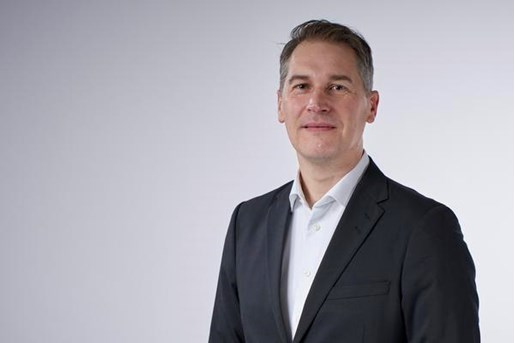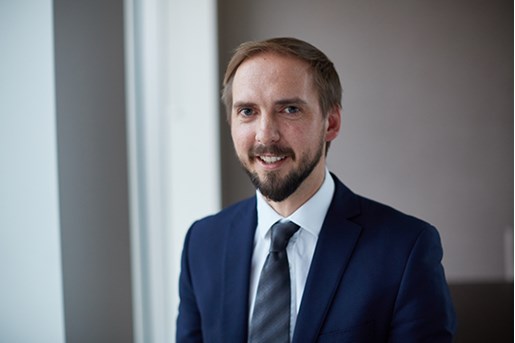A region on the rise
Explore some of the most interesting business news and articles from around the African continent.
You can also visit our dedicated Doing business in Africa site for more information and how Addleshaw Goddard can support you.
Africa - Ingrastructure & Energy
This month's newsletter focuses on the massive investments required in energy and infrastructure assets in Africa, the challenges associated with funding and successfully making those investments.
Africa is home to 1.2 billion people, which accounts for about 16% of the world's population. Its population is forecast to grow to 2.4 billion by 2050. Yet, it is estimated that more than half of its population still do not have access to secure, reliable sources of energy. Instead, basic needs are meet through the use of diesel generators and burning of heavy fuels such as charcoal, which cause significant harm to the environment and act as a barrier to economic growth.
Investment in Africa's energy and infrastructure sectors has historically embodied an unfortunate trend. On the one hand, it has enjoyed no shortage of investment in the extraction of natural resources – which are typically exported for sale in overseas markets. Yet on the other hand, the continent has suffered from chronic under-investment in the electricity and non-energy infrastructure sectors, with inadequate infrastructure and growing demand fuelled by a growing population. Western economies have traditionally funded energy and infrastructure investments through a mix of public spending and private sector investment – the latter considered to be a secure, long-term, low risk investment. However, in many African countries crippling shortfalls in public purses have put constraints on infrastructure spending and private sector investors have considered infrastructure investments too high risk.
As the funding gap continues to grow, a number of themes appear: one is the use of innovative financing techniques such as infrastructure bonds, green bonds and the tapping of local and international capital markets, as well as government mechanisms to support private sector investment. Another is the emergence of new technologies such as nuclear power and LNG-to-power, which are often sponsored by foreign investors supported by export credit agencies or other forms of foreign government support.
News
Women encouraged to pursue opportunities in Africa's energy sector
More than 600-million people in Africa do not have access to electricity and this creates opportunities for more women to get involved in the energy sector, African Women in Energy and Power (AWEaP) South Africachairperson Bertha Dlamini said during the inaugural women in energy seminar, held alongside the Power and Electricity World Africa2019 conference.
She said there were opportunities for women to help scale up the infrastructure that is needed to meet electricity demand.
Further, she noted that an era of rapid technological change is also coming at a pivotal time in the expansion of African power infrastructure.
Closing the gap in Africa's energy challenges
JOHANNESBURG – Africa is a continent blessed with an abundance of natural resources – water, wind, thermal coal, natural gas, and of course plenty of sunshine – but the electrification rate across the continent remains extremely poor.
Of the 1.2 billion people who live in Africa, it's estimated that more than 650 million have no access to energy, relying instead on fossil fuels like diesel for electricity generation and harmful cooking fuels such as wood, charcoal, and kerosene. This sets our continent back in meeting energy access goals, restricts industry progress, and diminishes the continent's economic growth by 2 to 4 percent every year.
South Africa needs holistic approach to energy, says energy minister
South Africa must consider nuclear as a clean energy source that can be part of its electricity generation mix, Energy Minister Jeff Radebe said yesterday in his keynote speech at a business awards ceremony.
"As a developing economy, plagued by high poverty and unemployment levels, the issue of reliable and affordable energy is critical", Radebe said. "The impact of unreliable or unaffordable energy on value-creating industries which contribute significantly to economic development could be very devastating if unmanaged".
SA could hold the key to an energy game changer
Africa is a continent blessed with an abundance of natural resources – water, wind, thermal coal, natural gas, and of course plenty of sunshine – but the electrification rate across the continent remains extremely poor.
Of the 1.2 billion people who live in Africa, it’s estimated that more than 650 million have no access to energy, relying instead on fossil fuels like diesel for electricity generation and harmful cooking fuels like wood, charcoal, and kerosene.
USA and Ghana Partnership for Solar Energy
U.S. Ambassador to Ghana Stephanie S. Sullivan led an event today in Kpone to mark the new partnership between the Ghanaian company Strategic Security Systems International, and its subsidiary Strategic Power Solutions, with the U.S. Company AEG International. Their initial objective will be to provide solar energy to six dioceses of the Ghana Catholic Church. The U.S. Trade and Development Agency (USTDA) is providing grant support for AEG International to work with Strategic Power Solutions to conduct a detailed feasibility study for the project.
The energy for the project will be generated from solar panels assembled in Ghana and from inverters, batteries, and other equipment manufactured in the United States. The solar panels will be assembled at Strategic Power Solutions’ (SPS) manufacturing facility in Kpone, where today’s event was held.
Sahara Energy CEO calls for swift unified standards for petroleum trade in Africaa
Sahara Energy CEO Tope Shonubi has called for more momentum to adopt unified standards for petroleum trade across Africa to replace the current fragmented African market.
A "lack of unitisation, inefficiencies, scale and different specifications brings about chaos", he told delegates at the yearly African Refiners and Distributors Association (ARA) Week, in Cape Town, this week.
Nigeria wants $20 billion infrastrcture spend over 10 years
Nigeria plans to spend $20 billion on infrastructure over the next 10 years and will introduce an infrastructure bond in 2019 as Africa’s biggest oil producer seeks to address challenges in revenue generation.
"Our target is that we’d like to see infrastructure spending increase to the $10- to $20-billion range over the next 5 to 10 years because we think that’s the level of our need", Okechukwu Enelamah, the minister for trade and investment, told reporters on Wednesday in the capital, Abuja.
Funding Africa's infrastructure: What are the viable options?
The rapid economic and population growth in most African countries has driven up infrastructure needs and deficit, but there remain little capital to finance it.
Recognising that infrastructure remains critical for Africa to improve the business environment, stakeholders have admitted to challenges, especially in accessing funds.
Speaking at the just-concluded Africa CEO Forum, in Kigali, both government and private sector players said that raising funds for infrastructure is quite often a challenge.
The rapid economic and population growth in most African countries has driven up infrastructure needs and deficit, but there remain little capital to finance it.
Recognising that infrastructure remains critical for Africa to improve the business environment, stakeholders have admitted to challenges, especially in accessing funds.
Speaking at the just-concluded Africa CEO Forum, in Kigali, both government and private sector players said that raising funds for infrastructure is quite often a challenge.
Africa has a $100 billion infrastrcture problem. Whats missing?
Africa suffers from poor quality and expensive infrastructure services compared to other parts of the world. It is estimated that this constrains productivity by up to 40 percent and reduces the continent's GDP by about 2 percent per year.
With the imminent enforcement of the African Continental Free Trade Area—which will be the largest single market in the world for goods and services, as well as the free movement of investments and people—the urgency for infrastructure development on the continent is even more compelling.
On top of this, Africa’s limited existing infrastructure is already being severely impacted by extreme events associated with climate change.
#AfricaInvetmentForum: Partners reaffirm commitment to close Africa's infrastructure gap
Abidjan, Cote d’Ivoire, 25 March 2019 – The African Development Bank, heads of 34 leading financial institutions covering Africa and other partners of the Africa Investment Forum reaffirmed their commitment to "scale up, speed up, and synergize" efforts to deliver transformative projects across the continent.
The meeting was also attended by lead partners of the Africa Investment Forum: African Export-Import Bank, Africa50, Trade Development Bank, Development Bank of South Africa, Africa Finance Corporation, European Investment Bank, and Islamic Development Bank.
Invest Africa
Invest Africa is Africa’s leading membership organisation for companies and investors operating on the Continent, using sixty years’ experience to provide our members with unique information and exposure to business opportunities across Africa. Our vision is to play a central and influential role in Africa’s socio-economic growth by guiding sustainable capital towards key prospects on the continent.
As the trusted entry point into Africa, we support and connect business and investment through a unique range of services and events, and our high standards consistently enact our belief that a responsible and profitable private sector has a crucial role to play in Africa’s development.
If you would like any further information, please contact info@investafrica.com




